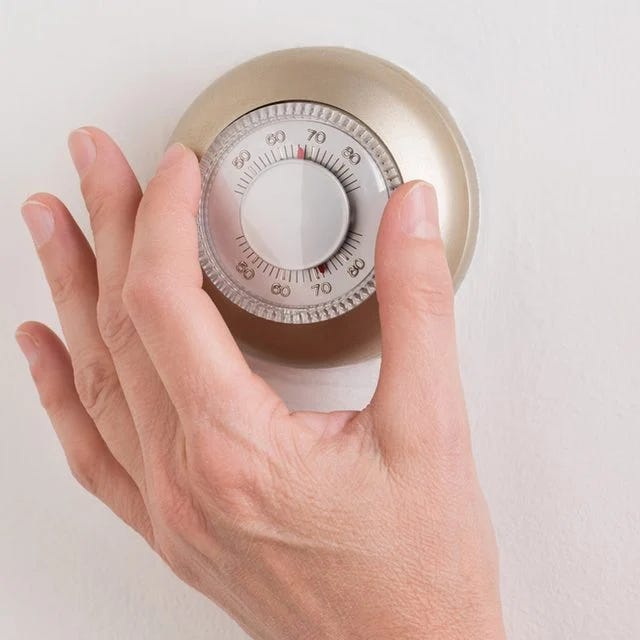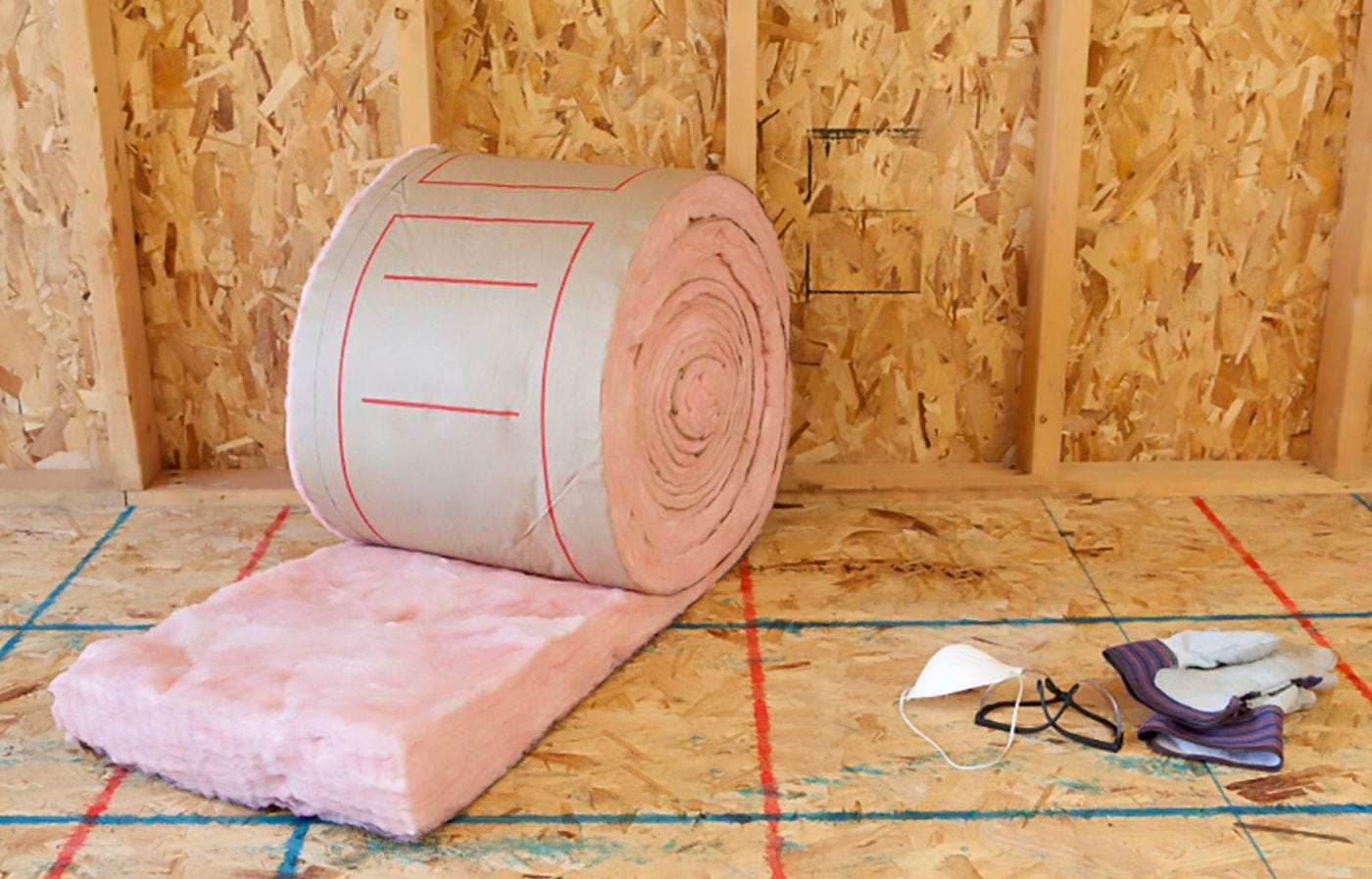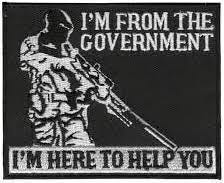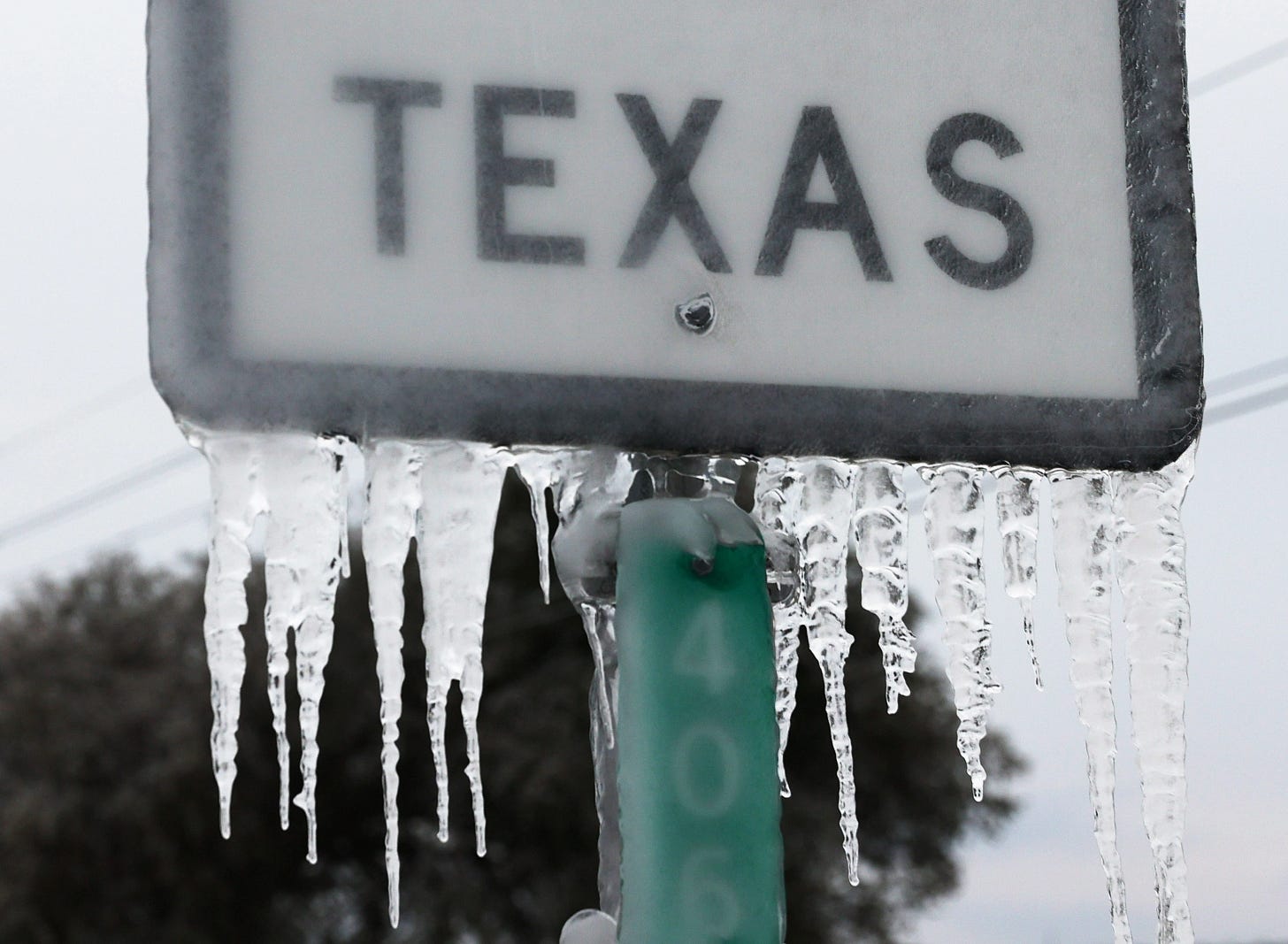Incentivizing Frugality
Personal note: Hello faithful readers! I have returned from my travels, and now it’s back to work, promoting freedom and liberty.
A proposed bill here in my home state of Texas would implement new regulations on the construction industry, with the purpose of making buildings more energy-efficient. Texas’ electrical energy grid, it seems, has issues with unreliability, stemming from events such as the hard winter freeze we had back in February 2021, and the severe heat wave we are experiencing this summer. Additionally, the Energy Reliability Council of Texas (ERCOT) is pushing us all to set our air conditioning thermostats higher during the hot weather - again, to prevent the grid from crashing.
Texas, of course, is not unique here. California has long since led the way in “incentivizing” customers and energy utilities to make their homes and businesses more efficient. It’s a national trend.
There’s something peculiar in all of this. Why must the government pass legislation to coerce someone to save money and be frugal? All commodities, such as food, drink, clothing, housing, medicine, transportation, entertainment, furniture, computers, books, tools, beer, designer fashion accessories, and so on, all cost money. The more you consume, the more it costs. We all have unlimited wants and needs, but limited resources with which to purchase them - and so we must make decisions on what to buy and how much of it. If the money runs out, something must go. That, or figure out a smarter way to stretch your dollar.
Electrical energy should be no different. When the weather outside gets uncomfortable, we want it to be nice inside, but cranking up the HVAC costs money. If it busts the budget, we gotta choose: either be uncomfortable, or forfeit something else. Or take the smart approach and invest in making our home or office more efficient. Your call.
But with energy, it apparently doesn’t work that way. And the reason is because there is an ambiguous and highly-regulated relationship between the providers and the consumers, thanks to government. Energy is one of what I call the Big Four (the other three being finance, medicine, and transportation): industries where the state has pretty much taken over, and inserted a boatload of politics into what should otherwise be a simple transaction between buyer and seller.
Why? Well, conventional wisdom says it’s because these commodities are important! We are told that we cannot trust the free market to supply them reliably at a fair price, and thus politicians and bureaucrats must run the show.
Let’s back up a bit and delve into the gory details here in Texas. Back in 2002, Texas Senate Bill 7 “deregulated” the electrical utility market. Oh how government loves to toss out such phrases, like Biden’s “Inflation Reduction Act”. In actuality, there’s not much electricity “deregulation” in Texas. The bill is a 232-page monstrosity of stipulations and endless legalese that divides the industry into three groups: Generation; Transmission/Distribution; and Retail Providers. Individual entities are, of course, prohibited from conducting business in more than one group, less they form a “monopoly.” ERCOT and the Public Utility Commission (PUC) of Texas (which could be considered “monopolies”) were given the power to manage and enforce everything.
The end result, naturally, is a convoluted mess that confuses customers and doesn’t give any producer, in any phase of the industry, incentive to produce a quality, reliable product. Is it any wonder that the whole system froze up in February 2021? So now the state government has to pass additional legislation to coerce everyone - consumers and producers alike - to be frugal, especially when demand is high.
If the electrical system were truly deregulated, businesses would then be free to innovate and devise whatever corporate strategy they felt would best foster high quality and low prices. Would that absolutely guarantee that the grid could withstand anything Mother Nature throws at it? In all honesty: hard to say. Nature can be vicious and unremorseful. And man-made threats (crime, terrorism, etc.) also exist.
But we can say this: the free market is the best thing ever devised to satisfy human wants and needs at the lowest cost. And “devised” is not even accurate; it just evolved from people having needs, and innovative entrepreneurs figuring out clever ways to satisfy said needs - for a profit. And a free market does not require governmental do-gooders to write messy laws requiring anybody to be productive, or frugal.






I assume the rationale for energy efficiency rules is environmental.
Is there a coherent libertarian response to externalities? Absent a brilliant scheme to assign property rights to the atmosphere, is some government action necessary? It’s ok to question the gloomy climate change predictions, but that sidesteps the question. For the sake of argument, suppose that man made global warming is real and harmful. Then what?